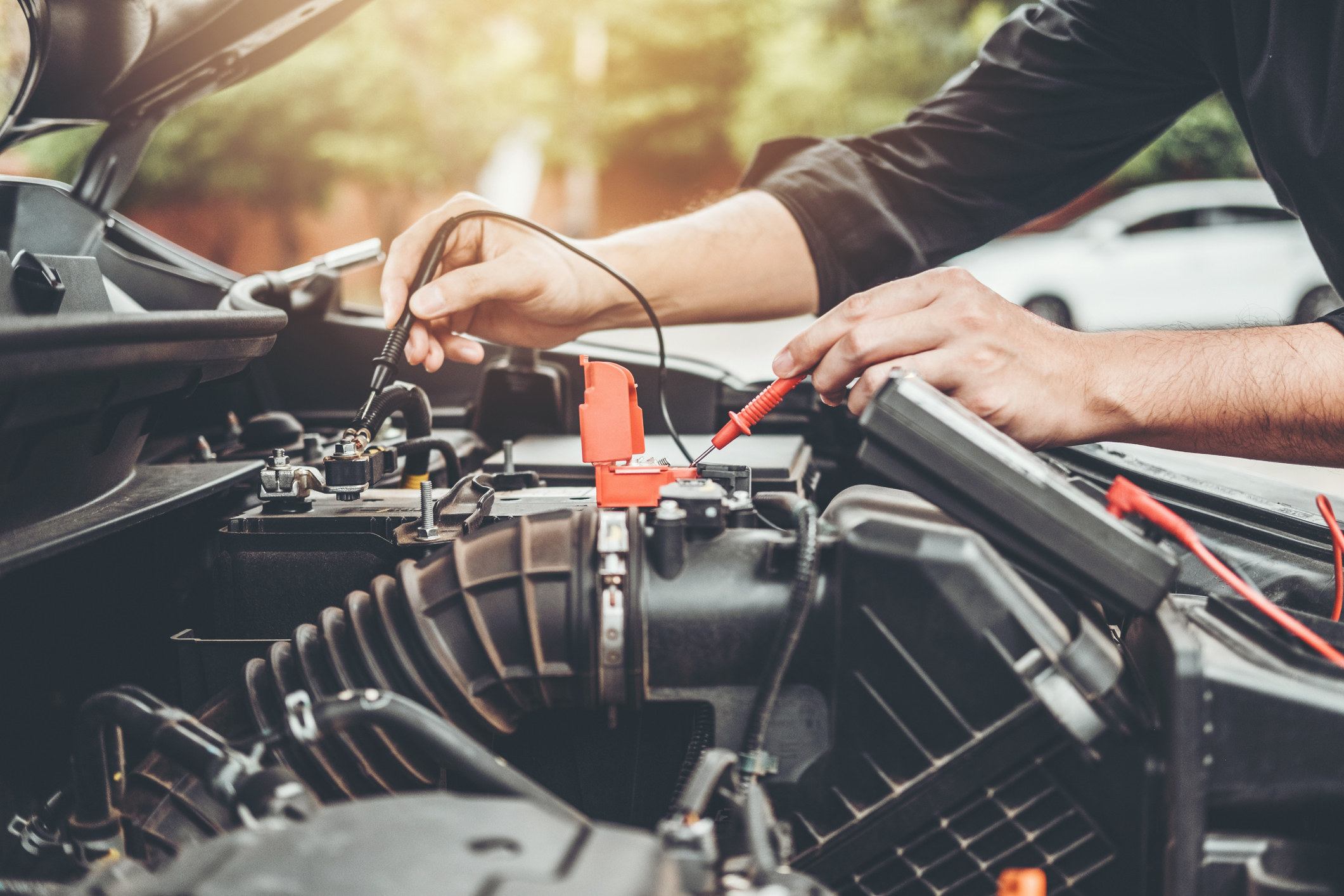All Categories
Featured
Responsible for synchronizing the rotation of the crankshaft and camshaft, the timing belt makes certain the engine's valves close and open at the appropriate times during the combustion procedure. If the timing belt fails, it can result in extreme engine damage.
What Is a Timing Belt? The timing belt is a long, toothed rubber or composite belt that links the crankshaft to the camshaft(s) in an inner burning engine. Its task is to maintain the engine's shutoffs and pistons in sync, making certain the engine runs efficiently. The timing belt additionally manages other crucial engine features like the water pump and the power steering pump, relying on the lorry.
![]()
Without the proper timing, the engine's pistons and shutoffs can clash, resulting in expensive and considerable damages. For that reason, changing the timing belt on routine is one of the very best means to ensure your engine runs at its best and protect against costly repair services.
Why Timing Belt Replacement Issues. Stopping Catastrophic Engine Damage: The most considerable risk of not changing a worn timing belt is engine failing. Replacing the timing belt at the advised periods is the ideal means to avoid such disastrous damage, saving you from the tension and high expense of engine repair work or substitute.
![]()
Keeping Engine Effectiveness: A timing belt that remains in great condition makes certain that all engine parts work in excellent consistency. If the timing belt is worn or stretched, it can create the engine to shed power, experience rough idling, or struggle to start. By replacing the timing belt regularly, you can maintain your engine running at peak performance, which aids preserve optimum gas economic climate and performance.
Preventing Unforeseen Breakdowns: A damaged timing belt can cause your engine to stop suddenly, possibly leaving you stranded in the center of a trip. By replacing your timing belt in a timely manner, you lessen the risk of abrupt break downs that might leave you in a bothersome or unsafe scenario. Normal maintenance lowers the opportunities of experiencing these kinds of disruptions, helping you remain on the road longer without stressing concerning your engine failing.
Affordable Upkeep: Timing belt replacement is a lot more economical than fixing or changing an engine that's been harmed due to a timing belt failing. While the price of changing the timing belt may differ relying on your vehicle and its place, it is even more budget-friendly than the costs connected with major engine fixings or substitutes. Changing your timing belt at the advised periods can save you a substantial amount of cash over the long run by protecting against damage to your engine.
When Should You Replace Your Timing Belt? The timing belt doesn't last permanently, and most makers advise changing it in between 60,000 and 100,000 miles. Nevertheless, the exact timing depends upon your lorry's make, model, and driving problems, so it's necessary to check your owner's manual for specific support.
Indications that your timing belt might require interest consist of uncommon engine noises (such as a shrill whining or ticking noise), difficulty starting the engine, or a decrease in engine performance. If you observe any of these indicators, it's critical to have the timing belt checked by a specialist technician.
![]()
Verdict. The timing belt is a tiny however important part of your engine, and normal replacement is key to maintaining your vehicle's performance and stopping pricey damages. By staying on top of timing belt upkeep, you'll ensure your engine operates successfully, prevent unexpected breakdowns, and secure your automobile from significant repair work. Watch on your vehicle's advised timing belt substitute timetable, and constantly talk to a trusted auto mechanic to keep your engine running efficiently for several years ahead.
What Is a Timing Belt? The timing belt is a long, toothed rubber or composite belt that links the crankshaft to the camshaft(s) in an inner burning engine. Its task is to maintain the engine's shutoffs and pistons in sync, making certain the engine runs efficiently. The timing belt additionally manages other crucial engine features like the water pump and the power steering pump, relying on the lorry.

Without the proper timing, the engine's pistons and shutoffs can clash, resulting in expensive and considerable damages. For that reason, changing the timing belt on routine is one of the very best means to ensure your engine runs at its best and protect against costly repair services.
Why Timing Belt Replacement Issues. Stopping Catastrophic Engine Damage: The most considerable risk of not changing a worn timing belt is engine failing. Replacing the timing belt at the advised periods is the ideal means to avoid such disastrous damage, saving you from the tension and high expense of engine repair work or substitute.

Keeping Engine Effectiveness: A timing belt that remains in great condition makes certain that all engine parts work in excellent consistency. If the timing belt is worn or stretched, it can create the engine to shed power, experience rough idling, or struggle to start. By replacing the timing belt regularly, you can maintain your engine running at peak performance, which aids preserve optimum gas economic climate and performance.
Preventing Unforeseen Breakdowns: A damaged timing belt can cause your engine to stop suddenly, possibly leaving you stranded in the center of a trip. By replacing your timing belt in a timely manner, you lessen the risk of abrupt break downs that might leave you in a bothersome or unsafe scenario. Normal maintenance lowers the opportunities of experiencing these kinds of disruptions, helping you remain on the road longer without stressing concerning your engine failing.
Affordable Upkeep: Timing belt replacement is a lot more economical than fixing or changing an engine that's been harmed due to a timing belt failing. While the price of changing the timing belt may differ relying on your vehicle and its place, it is even more budget-friendly than the costs connected with major engine fixings or substitutes. Changing your timing belt at the advised periods can save you a substantial amount of cash over the long run by protecting against damage to your engine.
When Should You Replace Your Timing Belt? The timing belt doesn't last permanently, and most makers advise changing it in between 60,000 and 100,000 miles. Nevertheless, the exact timing depends upon your lorry's make, model, and driving problems, so it's necessary to check your owner's manual for specific support.
Indications that your timing belt might require interest consist of uncommon engine noises (such as a shrill whining or ticking noise), difficulty starting the engine, or a decrease in engine performance. If you observe any of these indicators, it's critical to have the timing belt checked by a specialist technician.

Verdict. The timing belt is a tiny however important part of your engine, and normal replacement is key to maintaining your vehicle's performance and stopping pricey damages. By staying on top of timing belt upkeep, you'll ensure your engine operates successfully, prevent unexpected breakdowns, and secure your automobile from significant repair work. Watch on your vehicle's advised timing belt substitute timetable, and constantly talk to a trusted auto mechanic to keep your engine running efficiently for several years ahead.
Latest Posts
The Benefits of Regular Car Maintenance at Montclare Auto Repair Keeps Your Wallet Happy
Published May 14, 25
1 min read
Experience with a View: Boat Up to Deauville Inn’s Waterfront Deck
Published May 14, 25
2 min read
Unlock WyHy Federal Credit Union – Top Benefits for Your Financial Goals
Published May 14, 25
1 min read
More
Latest Posts
The Benefits of Regular Car Maintenance at Montclare Auto Repair Keeps Your Wallet Happy
Published May 14, 25
1 min read
Experience with a View: Boat Up to Deauville Inn’s Waterfront Deck
Published May 14, 25
2 min read
Unlock WyHy Federal Credit Union – Top Benefits for Your Financial Goals
Published May 14, 25
1 min read